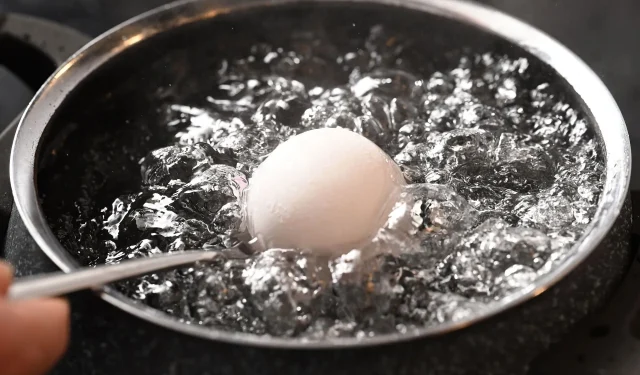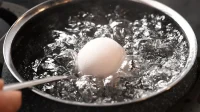The age-old method of Water Glassing has recently gained traction on TikTok, largely due to surging egg prices. The ongoing supply shortage of eggs in the United States has led many consumers to either reduce their egg consumption or purchase in bulk. However, stocking up can lead to the risk of spoilage if eggs are not stored correctly.
To address this concern, it’s crucial to explore effective preservation techniques that extend the freshness of eggs. Among these methods, Water Glassing stands out, promising to keep eggs viable for up to a year. Although this approach is gaining popularity across social media platforms, experts have expressed some caution regarding its safety.
Preserving Eggs with Water Glassing: A Step-by-Step Guide
In light of recent events, including a surge in egg prices post-avian flu crisis, there have been signs of relief with potential egg imports from European producers. However, uncertainty remains, and the outlook for egg supply in the coming months suggests challenges ahead.
The online discourse has exploded with inquiries not only about affordable egg options but also suitable alternatives. While buying in bulk may offer some financial relief, it necessitates effective preservation strategies to prevent spoilage.
Once relegated to the homesteading community, the Water Glassing technique is now trending on TikTok, as users share their experiences and ‘how-to’ videos. Historically utilized during winter months when egg production wanes, this method can effectively preserve eggs for extended periods.
Understanding Water Glassing
The Water Glassing procedure involves submerging fresh, unwashed eggs in a solution made from water and pickling lime. This alkaline mixture works to impede bacterial growth and seals the porous shells of the eggs, enhancing their longevity. For those keen on trying this method at home, follow the steps outlined below.
Materials Needed for Water Glassing
Step-by-Step Instructions for Water Glassing
- Combine one quart (approximately 1.13 liters) of water with one ounce of pickling lime in a separate container to create the preserving solution.
- Place the unwashed eggs into a food-grade container and pour the alkaline solution over them until they are fully submerged.
- Seal the container with a lid and store it in a cool, dark location.
- Your eggs are now preserved! Remember to wash them thoroughly before consumption.
While Water Glassing appears to be a simple and cost-effective preservation method, it is important to acknowledge expert concerns regarding its safety. Risks of Salmonella contamination and potential bacterial growth arise if the process is not executed correctly. For those who prefer alternatives, refrigeration and egg freezing techniques may pose fewer risks while still offering extended preservation.


